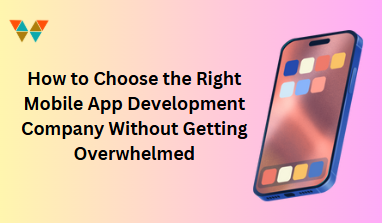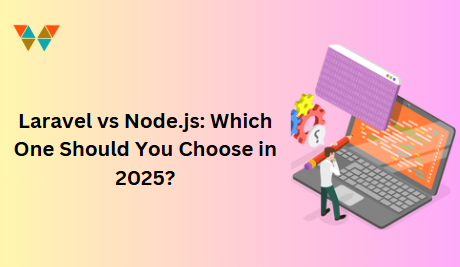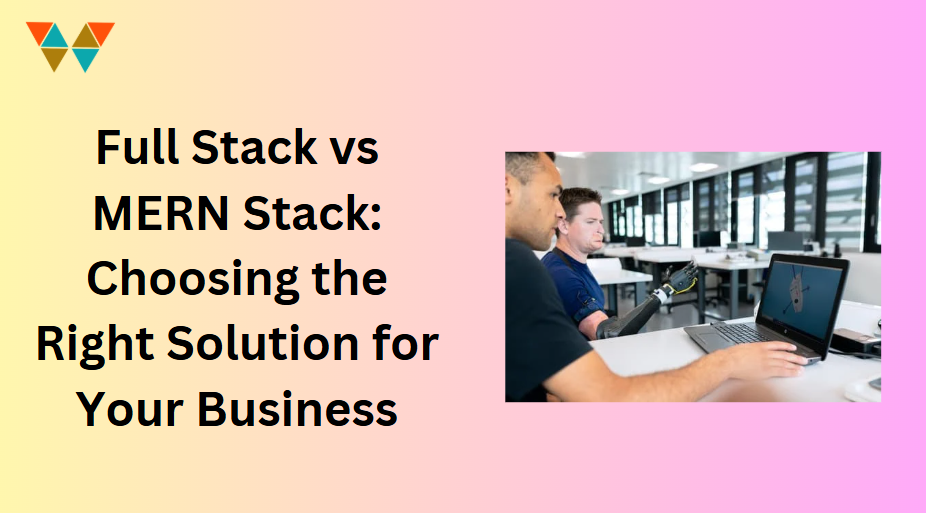Hire Android Developers: How to Find the Right Talent for App Success
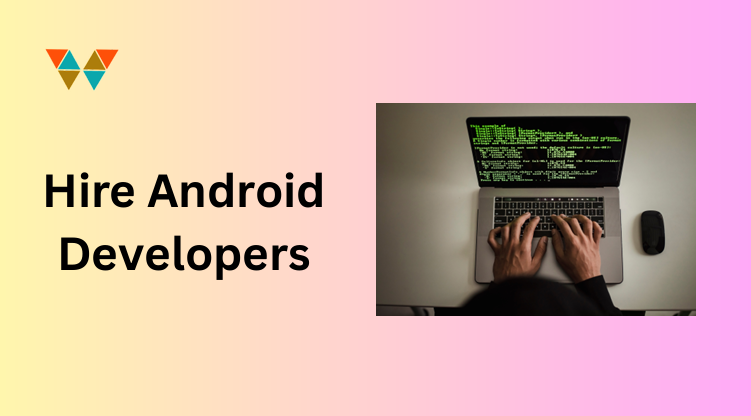
We live in a mobile-first world, and Android dominates that space. As of 2023, over 3 billion devices globally run on Android, and 71% of the mobile market belongs to Android (Statista). This makes it an enormous opportunity for startups, enterprises, and product-based businesses.
The deployment requires building a flawlessly integrated system that can manage masses of users while eliminating software defects on different device variations.
When you decide to work with Android developers, you receive someone who will develop your complete digital product besides standard coding tasks.
What Does an Android Developer Do?
Software engineers who specialize in developing android applications are known as Android developers. Android developers implement their skills in Kotlin and Java programming languages with tools that include Android Studio, Jetpack, and Firebase to design performant solutions that can scale or advance according to business needs.
But their job doesn’t end with coding.

They’re responsible for:
- Planning and implementing the user interface (UI) and user experience (UX)
- Writing backend integrations using APIs and databases
- Optimizing performance for different screen sizes and devices
- Ensuring the app runs smoothly on Android OS versions from 8 to 14+
- Publishing and updating the app on the Google Play Store
When you hire Android developers, you want people who understand all of this, not just someone who can put together a basic layout.
Skills You Should Look For When Hiring Android Developers
Hiring the wrong developer can stall your progress, waste your budget, and lead to bad reviews. Hiring the right one, though? That can skyrocket your product.
Here’s what to check for:
| Skill Category | Required Skills |
|---|---|
| Programming | Kotlin, Java, Android SDK, XML |
| Tools | Android Studio, Gradle, Git, Firebase |
| UI/UX | Jetpack Compose, Material Design Guidelines, ConstraintLayout |
| Backend & APIs | RESTful APIs, Retrofit, SQLite, Room, JSON |
| Testing | Espresso, JUnit, Mockito, UI Automator |
| Soft Skills | Problem-solving, attention to detail, teamwork, and communication |
Best Places to Hire Android Developers
There’s no one-size-fits-all approach to hiring. Depending on your project size, budget, and timeline, you can hire freelancers, full-time developers, or work with an agency.
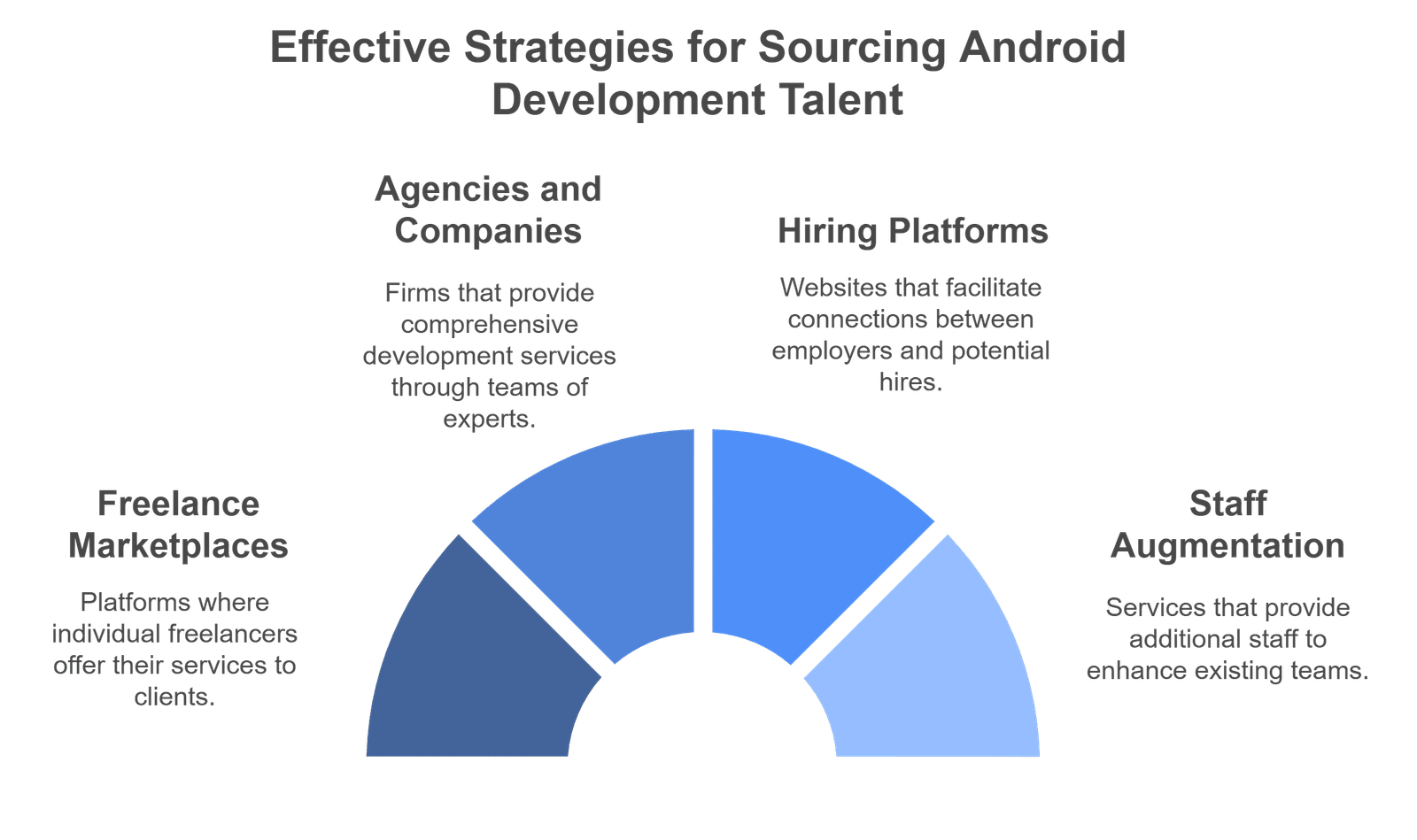
1. Freelance Marketplaces
These are great for quick MVPs or one-time features.
- Toptal: Top-tier vetted developers (more expensive)
- Upwork: Wide talent pool, price varies
- Fiverr Pro: Affordable for specific tasks (e.g., UI revamp)
Best for: Short-term projects, fast prototyping
Watch out for: Skill mismatch, lack of accountability
2. Agencies and Development Companies
This is your go-to for full-scale development.
Agencies bring project managers, designers, testers, and developers—all in one place.
Example: Witarist offers end-to-end Android development services with post-launch support, making them ideal for startups and SMEs.
Best for: Scalable projects, enterprise solutions
Watch out for: Higher initial cost (but better long-term value)
3. Hiring Platforms
If you’re building a long-term team, try:
- LinkedIn Jobs: Great for full-time roles
- AngelList: Startup-focused talent
- Stack Overflow Jobs: Developer-heavy job seekers
Best for: Permanent hires, technical founders
Watch out for: Slower hiring process
4. Staff Augmentation Services
Want flexibility and speed? Go with staff augmentation. You get skilled developers without the commitment of full-time hiring.
Explore Witarist’s IT staff augmentation model for plug-and-play Android devs that scale with your business.
Best for: Growing companies, sudden workload spikes
Watch out for: Integration gaps if onboarding is poor
What’s the Real Cost of Hiring Android Developers?
| Region | Average Hourly Rate (USD) |
|---|---|
| North America | $80 – $150 |
| Western Europe | $60 – $100 |
| Eastern Europe | $30 – $60 |
| India | $20 – $40 |
| Southeast Asia | $15 – $35 |
The average price range for mid-level Android applications is between $25,000 to $60,000 based on Clutch data, and enterprise-grade apps surpass this amount at $100,000+ and above.
How to Hire Android Developers: A Step-by-Step Guide
Want to hire Android developers without regrets? Follow this simple process:
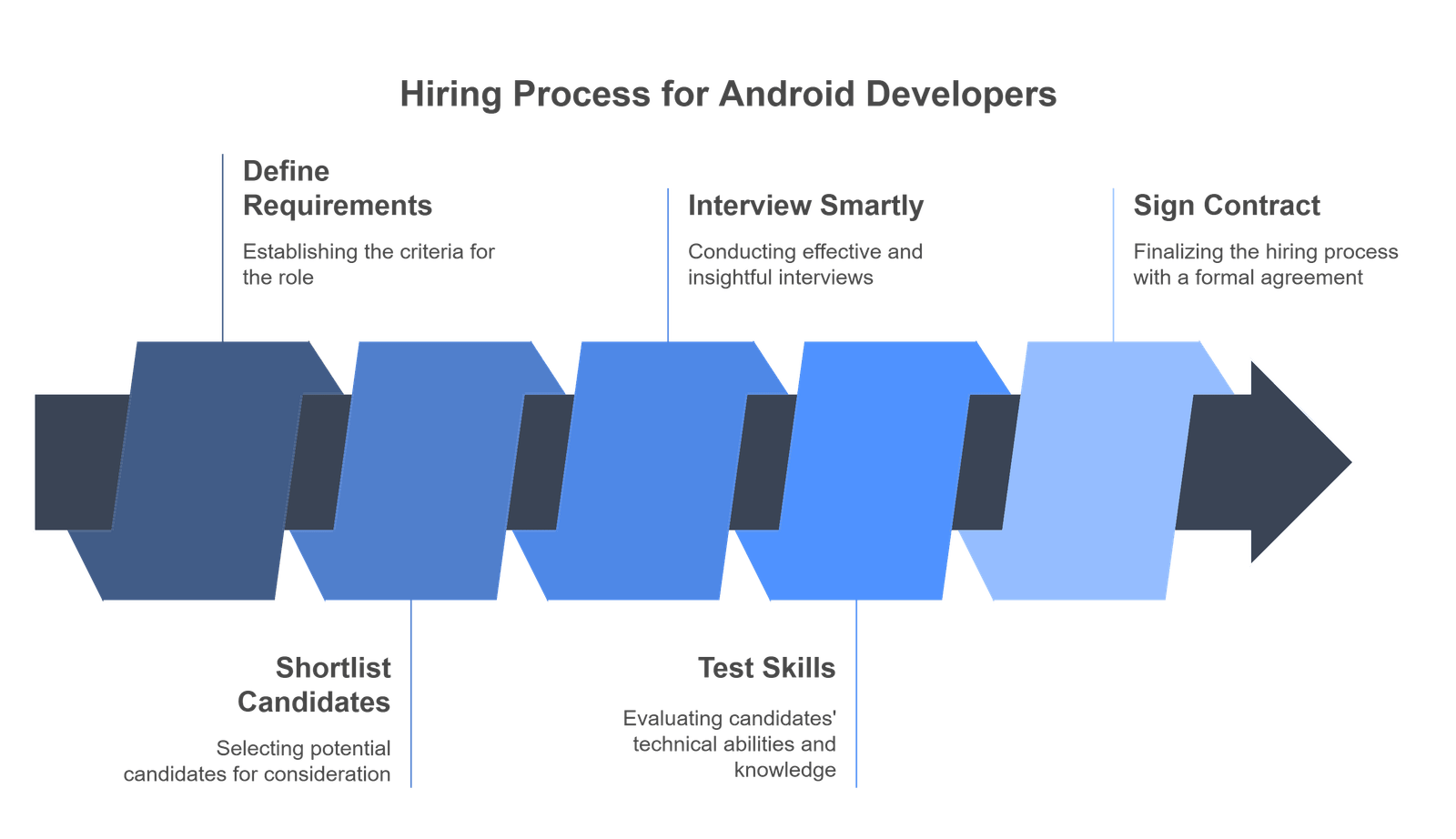
Step 1: Define Your Requirements
- What kind of app are you building?
Is it a business tool, a shopping app, something social, or totally new? - What features do you need?
Things like user login, chat, maps, payments, or push notifications? - What’s your budget and timeline?
Be honest about how much you can spend and when you need it live.
Step 2: Shortlist Candidates
- Use LinkedIn, Upwork, or trusted agency websites (like Witarist) to find professionals with relevant Android experience.
- Ask for portfolios, GitHub links, or live apps.
Step 3: Interview Smartly
- Ask about their development approach.
- Check if they know Kotlin and Jetpack.
- Discuss how they handle testing and performance optimization.
Step 4: Test Their Skills
- Give a small paid test task.
- See how they write code, document it, and meet deadlines.
Step 5: Sign a Clear Contract
- Define the scope, timelines, milestones, and post-launch support.
- Don’t skip an NDA if needed.
In-House vs. Remote Android Developers
Let’s compare both:
| Factor | In-House | Remote |
|---|---|---|
| Cost | High (salary + benefits) | Lower |
| Talent Access | Limited to local market | Global |
| Communication | Easier | Needs tools (Slack, Zoom, etc.) |
| Time to Hire | Longer | Faster |
Remote developers are perfect for startups that want flexibility. In-house developers shine when you need close collaboration.
Common Mistakes to Avoid When Hiring Android Developers
Here are the traps many businesses fall into:

- Hiring based only on cost → cheap can become expensive
- Not testing skills → portfolios alone don’t prove ability
- Skipping a trial period → always start small
- No post-launch plan → Android apps need updates and patches
Poor communication tools → delays and confusion follow
Kotlin vs Java: What Should Your Developer Use?
While both are official Android languages, Kotlin is the modern, more concise choice, and it’s now Google’s preferred language for Android apps.
| Feature | Kotlin | Java |
|---|---|---|
| Code Length | Short | Long |
| Null Safety | Built-in | Not built-in |
| Learning Curve | Slightly steep | Easier for beginners |
| Popularity | Rising fast | Still widely used |
How to Measure Developer Performance
Tracking performance is essential. Use the following benchmarks:
- Time to complete a feature/module
- Number of bugs reported after release
- Quality of documentation
- Feedback from testers and stakeholders
- Code readability and reusability
Use tools like:
- Jira for task tracking
- Slack for communication
- Bitbucket or GitHub for code review
Common Misconceptions (And The Truth)
I can just hire any mobile developer.
No, Android development has its own libraries, tools, and OS-specific quirks.
My app is done once it’s published.
Not true. The real journey begins post-launch—bug fixes, feature updates, and OS upgrades are ongoing needs.
Android development is easier than iOS.
Not really. Android involves handling many screen sizes, OS versions, and hardware variations.
Conclusion: Build the Right Way, Hire the Right Way
Your Android app can open doors to millions of users—but only if it’s built with the right expertise. Hiring Android developers isn’t just a technical decision. It’s a strategic investment in your product’s quality, performance, and long-term success.
Choose your hiring method wisely. Know what skills to prioritize. Set clear expectations. And above all, treat your developer like a partner, not just a contractor.
Ready to Hire Android Developers?
Explore Witarist’s Android Development Services and connect with certified experts who understand performance, design, and business impact. Whether you’re building your first app or scaling an existing one, we’re here to help.
